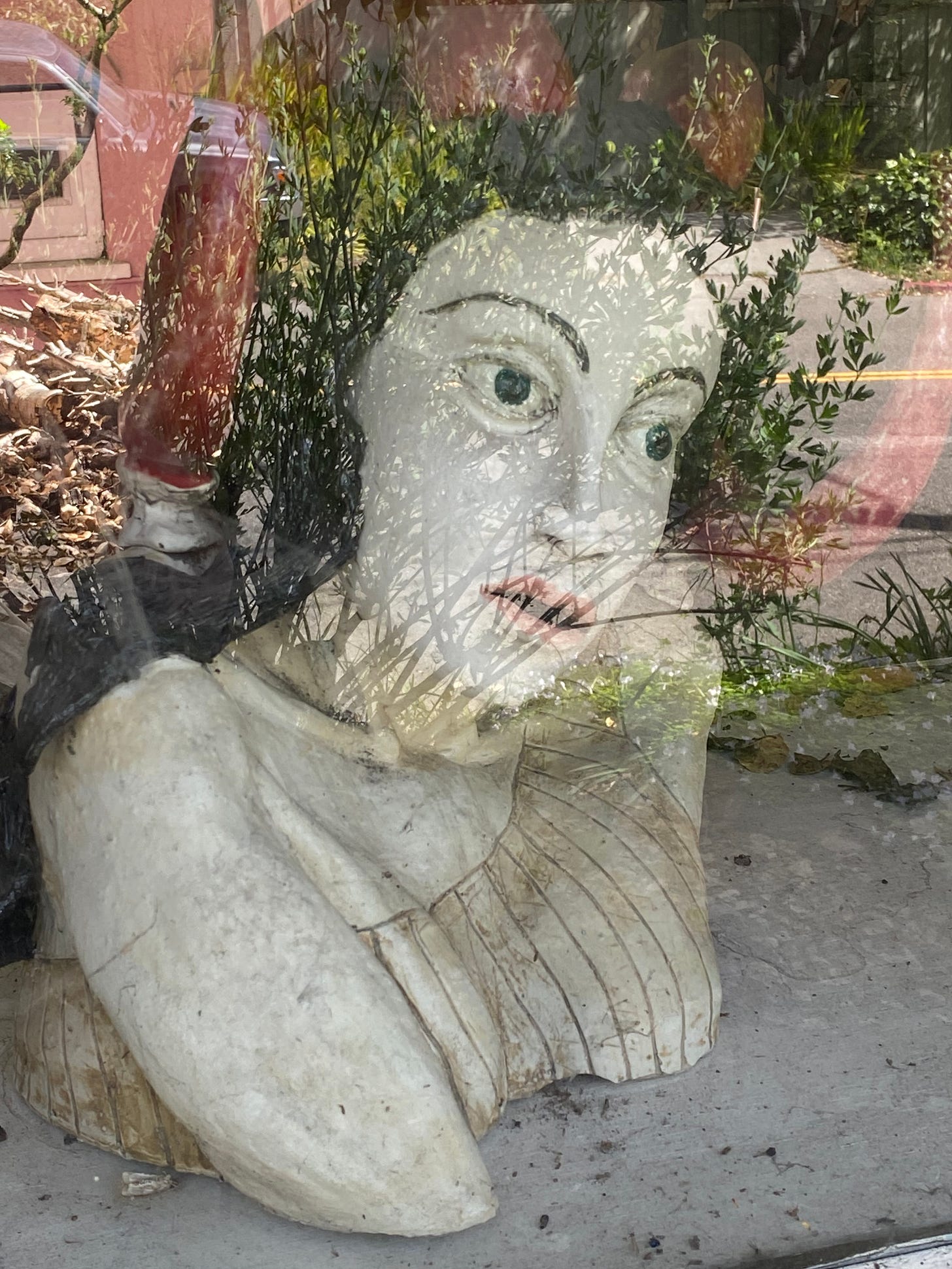Overresponsibility: sometimes it isn't your problem
Feeling responsible for what you can’t control is pointless labor that no one asked for, like drinking poison and hoping your ebbing strength will magically be given to those in need.
An SEP is something we can't see, or don't see, or our brain doesn't let us see, because we think that it's somebody else's problem. That’s what SEP means. Somebody Else’s Problem. The brain just edits it out, it's like a blind spot.
— Ford Prefect, Hitchhiker's Guide to the Galaxy by Douglas Adams
We always hear people saying that indifference is the enemy, that the problem is that everyone sees the problem and thinks "not my problem." (Think Kitty Genovese and the bystander effect.) That isn't my experience. My sample is non-random, of course, but what I see is people drowning in a sea of things they can only dimly affect but consider to be "their problem." If it's not Palestine or AI timelines, it's “is that guy mad at me???” or “Stupid! I should have thought to bake cookies last night because my office mates depend on the treats I bring.” Millions of people feel that politics are their problem, and the majority of them don't have a vote on, don't call their representatives about, and are not activists regarding the issues that are so fervently their problem.
Overresponsibility is one of the three dysfunctional attitudes that most anxious people have (the others are perfectionism and intolerance of uncertainty), I learned from this excellent CBT anxiety treatment book. Feeling responsible for things you cannot control, or for too many things for you to be able to control them all, is a recipe for misery. And yet I hadn't heard of the problem of overresponsibility until my late 20s.
The fact that people don't take real, effective action on the political or personal issues they say they care about is often used as evidence that those issues really just signal their identity. But I think this trivializes the moral weight of feelings of overresponsibility. It’s so heavy to bear over responsibility that it feels like you are doing something just to hold it. Speaking from my own experience, the cost of overresponsibility can be what makes you feel entitled to the benefits of signaling. I deserve to look like a self-sacrificial person who cares about the right things because I won't allow myself to be happy until the world is saved.
I think overresponsibility also explains a lot of bitter and hateful attitudes towards the world's problems. People are defensive about problems they don't have anything to do with because they feel like they should have a solution. People are hateful toward victims because otherwise they can't bear to think of their pain. When people can't deal with the way external events make them feel about themselves, they mix up their personal reactions and coping behaviors with what actually needs to be done.
Running an activist org (PauseAI US) has brought my struggles with overresponsibility into sharp relief but, more importantly, it has shown me the cost of these feelings. Before, it was easy to excuse my overresponsibility as a virtuous character flaw. Indulging it harmed me at most, I thought. Well, lowkey believing you are omnipotent is operating on false information and can lead to a disastrous misallocation of energy. Simply feeling responsible doesn’t change anyone’s mind, yet it leaves you feeling more drained and exhausted than attending a protest or calling your representative. It’s pointless labor that no one asked for, like drinking poison and hoping your ebbing strength will magically be given to those in need.
It’s really hard to make change, and overresponsibility can make you believe you’re in it alone. Ruminating about how messed up the world can be a solitary activity. Actually doing something about it generally requires working with others— others who exist and want to step up! Really being committed to doing the PauseAI intervention has made me appreciate how much we depend on others doing their jobs to get anything done, let alone everything. There are billions of people in the world. Any issue of sufficient size is already someone else’s problem whether it’s yours or not.
The truth is we are each limited humans and we have to triage our energy and ability to affect the world. Feeling responsible is not free, so you should spend it wisely. You can change the world, but you only have so much energy and ability to do it with. It’s not virtuous to believe or act as though your power is greater than it is.



I stumbled upon this piece due to David Chapman sharing it and I couldn’t be grateful.
Thank you so much for giving a word to what I see has driven a loved one to deep anxiety. It also clarifies where I place my energy and why.